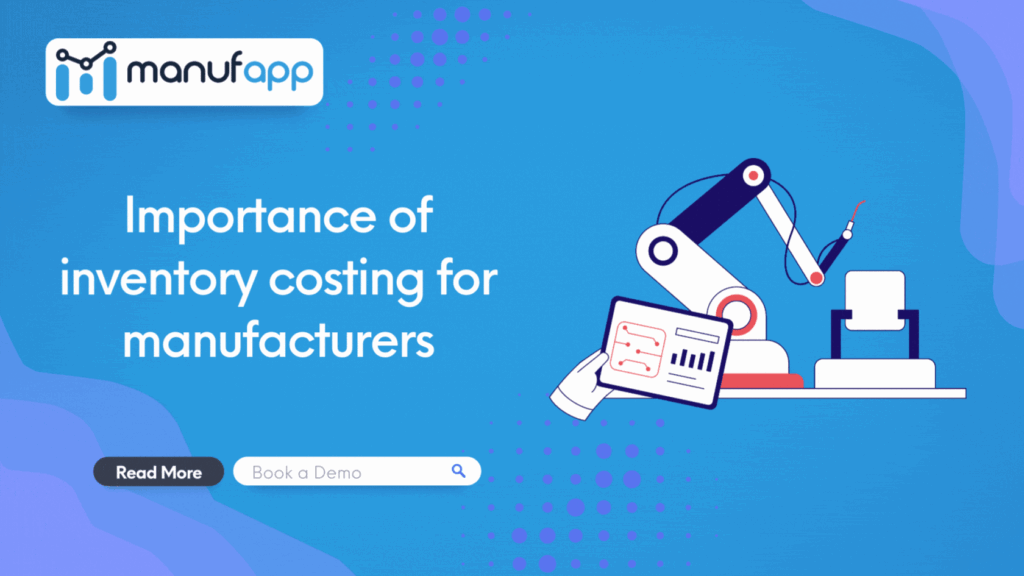ABSTRACT:
Managing Inventory in manufacturing is of utmost importance. In most manufacturing businesses, inventory forms the biggest cost component of goods sold. Inventory costing plays a crucial role when it comes to effective management of inventory. Inventory costing is an accounting process done to determine the value of a company’s inventory. It impacts a company’s financial statements, tax obligations, and overall profitability. In this article, we shall discuss the concept of inventory costing and its significance for manufacturers.
INTRODUCTION:
Inventory costing is the process which assigns a monetary value to the inventory in the hand of a company at any time, this includes raw materials, work-in-progress, and finished goods. This valuation is essential for accurate financial reporting, effective cost management, and strategic decision-making for attaining a sustained competitive advantage. Inventory costing is related to balancing the cost of having high levels of inventory as well as low levels of inventory. Manufacturing entities heavily rely on precise inventory costing as it helps to determine product pricing and control expenses.
IMPORTANCE OF INVENTORY COSTING FOR MANUFACTURERS:
For any manufacturing entity, inventory is the most important asset which helps in further generation of profits, thereby maintaining a company’s stability. Therefore, accurate valuation of inventory is crucial. Proper inventory costing and valuation helps manufacturers in the following manner:
- Financial Reporting: Financial statements like balance sheets and income statements reflect a company’s true performance. In the income statement, the cost of goods sold (COGS) is derived from inventory costing and has a direct impact on the gross profit and net income of a company. Misstated inventory leads to erroneous profit calculations and can mislead stakeholders.
- Cost Management: Proper inventory costing helps manufacturers identify inefficiencies and control unwanted production and holding costs. An awareness of the true valuation of inventory allows manufacturers to set competitive and profitable prices.
- Tax Compliance: Different inventory costing methods may affect the calculation of cost of goods sold (COGS), which in turn impacts taxable income. These different methods can lead to variations in reported income and tax liabilities.
- Strategic Decision-Making: Proper inventory costing provides data that helps manufacturers make informed decisions about resource allocation and capital investment. An analysis of such data supports various strategic decisions of whether to discontinue a product line or launch new products.
ManufApp, with its cutting-edge cloud Manufacturing ERP and Inventory management solution, provides complete visibility into inventory costing. ManufApp connects purchase orders to dispatches of orders. In this order to dispatch cycle, it tracks the material movement including purchase, production, planning, rejection, rework, scrap etc. processes. In the ManufApp system, one can define items or products in various categories like Raw Material, Work in Progress, Finished Goods, Scrap, and Rejected material. ManufApp provides an easy-to-use mobile application where one can track all the inventory transactions in the system.





